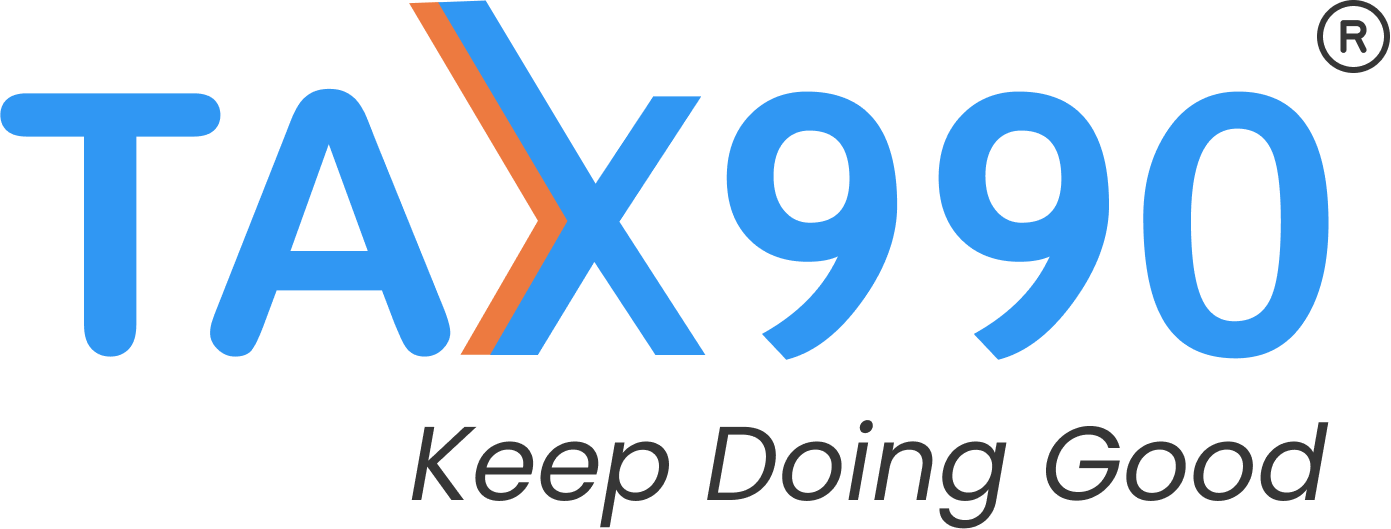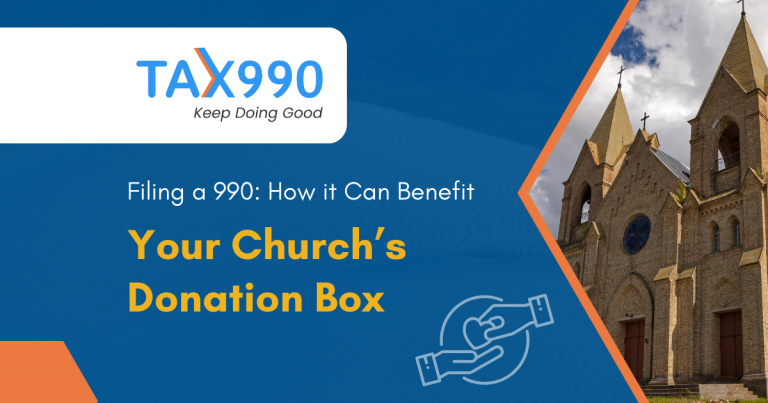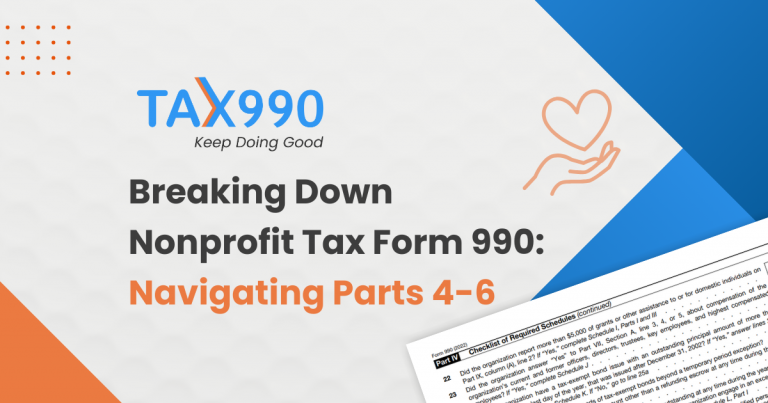Estimated reading time: 20 minute(s)
Creating and operating a nonprofit organization is a challenging feat. So much work goes into establishing and maintaining the organization’s good standing with the IRS and in many cases, their state.
This blog will focus on the specific reporting requirements for the State of California. In addition to completing and filing their 990 Series Return with the IRS each year, nonprofits must meet certain requirements with the state agency.
Here is a quick guide to California Nonprofits filing requirements.
How are Nonprofits Formed in the State of California?
Let’s begin with how nonprofits are established in the state of California. There’s a comprehensive process for incorporation that all nonprofits must adhere to. It involves more than just crafting a nonprofit’s name and mission statement before they can start collecting donations from the public. Here’s a brief overview of the requirements.
Registration with the Secretary of State:
The first step of establishing a nonprofit organization is submitting articles of incorporation to the Secretary of State’s office. This information typically includes:
- Corporate name
- Business Address
- Service of process
- Purpose Statement
- Additional Statement
There is an incorporation filing fee of $30 and an additional optional certified copy fee of $5.
Registration with the Attorney General
The next step in the process is registering with the Attorney General’s office. All charitable corporations, unincorporated associations, charitable trustees, and other legal entities holding property for charitable purposes must file Form CT-1 and pay a registration fee of $50.
This process must be completed within 30 days of receiving its first charitable assets. Charitable assets can be defined as property given, received, or held for a charitable purpose.
Obtaining Tax-Exempt Status from the State of California
Now that the nonprofit has been registered with the appropriate offices, there are some additional filing requirements to complete before the State of California grants tax-exempt status.
It is important to note that just because your organization has obtained federal tax exemption doesn’t mean that the organization is automatically tax-exempt in the State of California.
Organizations that don’t already have IRS tax exemption can file Form 3500 with the State of California to obtain exemption from state corporate and income taxes. This form will require you to indicate the organization’s type of tax exemption.
Organizations that already have federal tax exemptions can file Form FTB 3500A, Submission of Exemption Request, and a copy of its valid federal determination letter to the California Franchise Tax Board (FTB).
Maintaining Good Standing – Annual Requirements with California
After the organization has been incorporated and registered with the state, it can commence operations. However, the process is ongoing for as long as the organization exists. It entails fulfilling annual filing requirements with both the IRS and the state.
Federal Filing of 990 Series Returns:
Depending on the organization’s structure, the value of its assets, and the amount of gross receipts it collects, it must file one of the 990 Series Returns with the IRS annually.
This form serves to demonstrate to the IRS and the public how the organization generates donations and, more importantly, how that funding is allocated through programs and services.
The deadline to file the 990 return is usually the 15th day of the 5th month following the end of the organization’s accounting period.
Annual Filing with the State of California
In addition to filing an annual 990 return with the IRS each year, there are also some requirements to fulfill at the state level to maintain tax exemption with the State of California.
Annual Renewal with the Attorney General’s Office:
The California State Attorney General’s office requires organizations to submit an annual renewal Form RRF-1 and attach a copy of their 990, 990-EZ, or 990-PF return. There is also a fee that must be paid. Organizations that are not required to file one of the 990 returns above can submit Form CT-TR-1 to the Attorney General’s office.
Annual Filing with the Franchise Tax Board (FTB):
In addition to their required 990 filings with the IRS, the state of California requires tax-exempt organizations to file one of the following based on their organization’s structure and annual gross receipts. The required forms include:
- Form 199-N: Typically filed by organizations with gross receipts, normally $50,000 or less
- Form 199: Typically filed by organizations with gross receipts of more than $50,000 and/or private foundations.
- Form 109: Filed by any organizations that have Unrelated Business Income (UBI) of $1,000 or more.
Additional Registration/Renewal Obligations:
Tax-exempt organizations are required to file Form SI-100, a Statement of Information within 90 days of their initial registration and every two years thereafter.
Deadlines for Annual Filing and Renewal with California
Now that we’ve covered filing and renewal requirements for nonprofit organizations, let’s talk about when to file them. Here is how you can determine the deadlines for each:
Annual Renewal Deadline:
Generally, the state of California requires charitable organizations to complete their annual renewal no later than 4 months and 15 days after the end of the
organization’s accounting period. For organizations following a calendar year, this is April 14th.
Annual Filing Deadline:
Nonprofit organizations are required to file forms 199, 199N, and 109 by the 15th day of the 5th month following the end of the accounting period. This means if your organization follows the calendar tax year, the annual filing deadline is May 15th.
Are there any Penalties for Failing to File or Renew with the State of California?
Yes! Failure to comply with California’s renewal and filing requirements.
Delinquency with the Attorney General’s Office:
If your organization fails to renew its registration, it will be listed as delinquent with the Attorney General’s Registry of Charities and Fundraisers, resulting in the loss of its tax-exempt status with the California Franchise Tax Board.
Penalties for Late Filing:
If your organization fails to file CA Form 199 on or before the due date, it may be subjected to a penalty of $5 per month or part of the month. The penalty cannot exceed $40.
Maintain Tax-Exempt Status with the Help of Tax990!
With the deadline approaching for California nonprofits operating on a calendar year, set for March 31st, Tax990 is here to assist you in e-filing both your federal 990 Series Return and your organization’s California Form 199!
Tax990 streamlines the filing process, offering both a direct-form entry option and an interview-style filing. Additionally, our filing process integrates IRS Business Rules to identify common errors, ensuring more precise and efficient e-filing of 990 returns. Moreover, you can collaborate seamlessly with your team using a single, secure account, and share the 990 for review and approval with key members of your organization before transmission to the IRS.
Tax990 delivers a comprehensive filing experience, including the necessary 990 schedules at no extra cost. It also supports the filing of amendments, and in the event of rejection, you can correct and retransmit your 990 return at no additional charge.
Are you ready to kick-start the process with Tax990 and maintain your state and federal filing compliance from a single, secure application? Sign up for your free account today!



